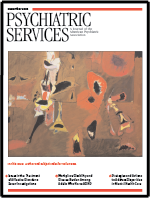A Girl Becomes a Comma Like That
Lisa Glatt's debut novel, A Girl Becomes a Comma Like That, tackles the complexities of women's relationships with friends and family, their bodies, and themselves. Rachel Spark, a 30-something university poetry teacher, is the "girl" looking for love and meaning in a life burdened by having to care for her sick mother, in between her sexual encounters with various unsuitable men. Rachel is constantly looking for something she can't seem to find. "If I slept only with men who knew my full name, if I signed up for dance classes, if I ate more fruit—even then there was no guarantee I'd get what I wanted."
Rachel tells her story in a first-person account while intertwining third-person accounts of three other young women: Rachel's best friend Angela Burrows, a socially inept young woman who suffers from mysterious allergies and chases men she can't quite seem to capture; Ella Bloom, an adult student in Rachel's poetry class who discovers her new husband is having an affair with a coworker; and Georgia Carter, a promiscuous 16-year-old who is a regular client of the Planned Parenthood clinic where Ella works and where Rachel has an abortion.
What connects these women is exactly what keeps them apart from each other and everybody else. They share a common loneliness they try to fill with sex. As the title indicates, "A girl becomes a comma like that, with wrong boy after wrong boy; she becomes a pause, something quick before the real love." Each woman craves authentic love that she cannot, or will not, allow herself to experience.
Juxtaposed against these women is Rachel's mother, who while dying of breast cancer at the age of 59 is coming to terms with her fading beauty and embracing a simpler, less complicated life. She provides an example of living less critically and more generously. She perhaps foreshadows Rachel's own future of learning to forgive oneself while living a kinder, gentler life.
This chaotic story is told with tenderness and humor, and without judgment. Although some characters receive more attention than others, all have full and robust traits that will pique the reader's interest. Glatt's prose is authentic and pure. The structure, however, is rough at times, with a lot of back and forth between different characters' stories and between past and present tense. The ending is appropriately vague, leaving the reader unsure of whether Rachel will find that "real love" she seeks. The uncertainty is just right; the reader wouldn't want it any other way.
Dr. Biebel is research assistant professor of psychiatry at the Center for Mental Health Services Research of the University of Massachusetts Medical School in Worcester.



